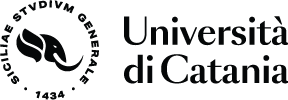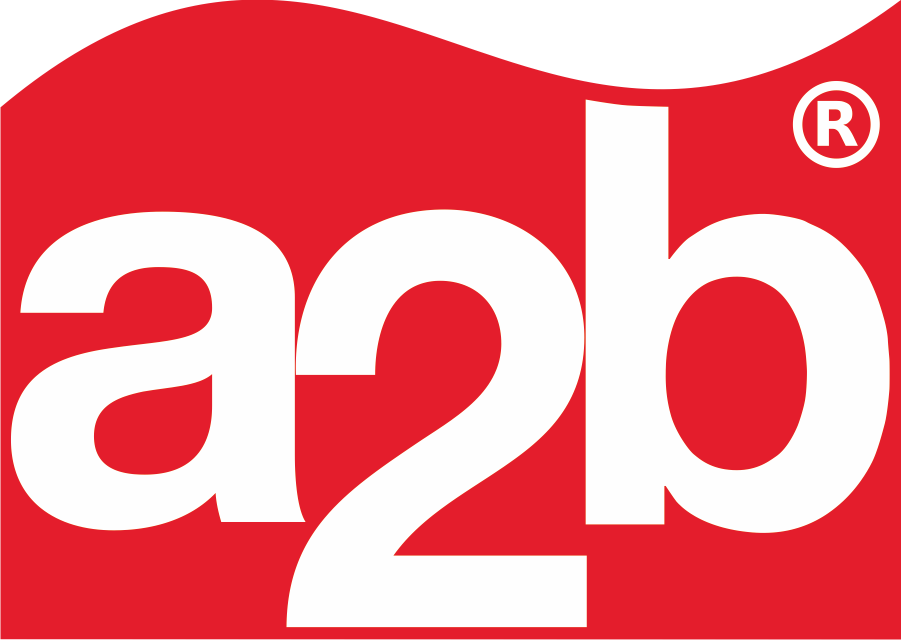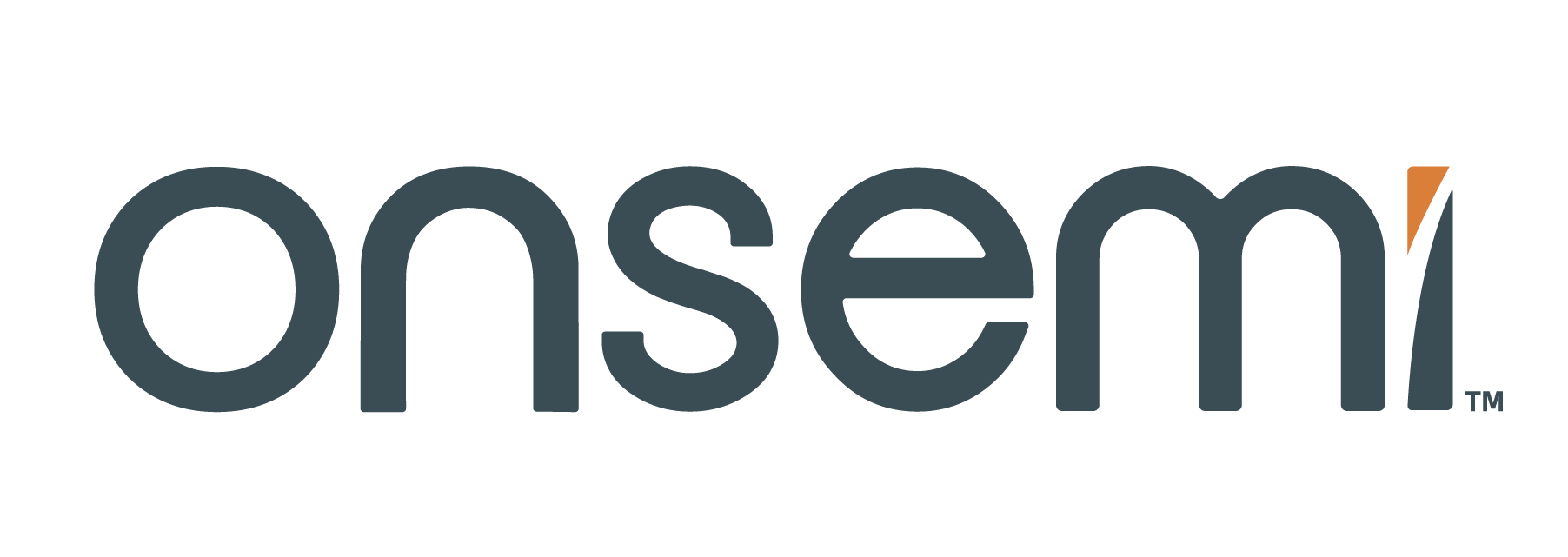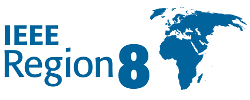
ABOUT THE CONFERENCE
The conference is the 15th of the series of international conferences which began in 1995 initially as a national conference with international participation. The conference is organized by the Faculty of Electrical Engineering and Information Technology, University of Žilina, every two years.
The conference ELEKTRO 2024 is organized in cooperation with the Cracow University of Technology, PL and the University of Catania, IT.
The purpose of the conference is to provide an international forum for researchers and professionals interested in electrical and electronic engineering, information and communication technologies as well as interdisciplinary areas with the main attention to the conference topics.
CONFERENCE TOPICS
TPC1 Informatics and Information Technologies
Wireless, Optical and Photonic Systems and Networks; Advanced Networks and Services; Modelling and Simulations in ICT; Digital Signal Processing; Multimedia Technologies; E-Society; Intelligent Transport Systems, Transport Telematics and Smart Cities; E – Safety, Risk Analysis, Theory and Methods of Safety Control; Artificial Intelligence in Process Control; Communication Systems in Transport and Industry.
TPC2 Power Electronics and Energy Systems
Power Electronic Devices and Converter Topologies; Modelling, Simulation, Measurement; Control Systems, Digital Control and Microelectronics; Thermal Performance and Optimization; Power Electronic Systems and Applications; Autotronics; Automotive Applications (EV, HEV, etc.); Power Train and Communication In Vehicles; Battery Management and Energy Storage; Electrical Machines, Drives and Traction; Power Electrical Engineering, Smart Grids, Renewable Power Sources; Power Supply for Electrical Railways Applications; Electrical Measurements and Instrumentations.
TPC3 Materials (and) Technologies, Biomedical Engineering
Electromagnetic Fields in Various Materials and Coupled Problems; Utilization of Electromagnetic Field Effects in Material Nondestructive Evaluation; Analysis of Electromagnetic Field and Electrical Circuits using Analytical and Numerical Methods; Technical Tools and Computer-aided Methods in Biomedical Engineering; New and Perspective Materials and their Physical Properties; New Experimental Methods, Techniques and Technologies; Thin Layers and Heterostructures; Microelectronic and Optoelectronic Devices; Optical Fibers and Cables
TPC4 Robotics, Cybernetics, Mechatronics
Industrial and Mobile Robotics; Mobile and Compliant Manipulators; Multiagent Systems; Intelligent Vehicles; Visual Sevoing; Data processing; Control Systems; Mechatronic Systems – design, modelling, simulation and optimization; Sensors and Actuators; Automation Devices; Biologically Inspired Robotics; Collaborative Robotics; Aero-Space Applications
TPC5 Education in Electrical Engineering and ICT
Attractiveness of Engineering Education; Project and Problem Based Learning; E-learning, STEM education
REGISTRATION AND FEES
| Type of registration | Early* | Regular | |
|---|---|---|---|
| Authors (first and second paper**) | € 580 | € 610 | |
| Participants (without papers) | € 560 | € 590 | |
| Additional paper (3rd and the following) | € 300 | € 300 | |
| Students (PhD) | € 490 | € 520 | |
| IEEE Graduate student / Student member (join) | € 390 | € 420 | |
| IEEE members (join) | € 510 | € 540 | |
| Accompanying person | € 500 | € 500 | |
| Regular registration deadline is midnight CEST, 31.03.2024 | |||
| * | The early registration deadline has been extended to midnight CEST, 14.03.2024 | ||
| ** | Registered author may submit two papers | ||
Note: All fees in the table above are including 20% VAT. Please wait for the registration confirmation e-mail with payment instructions.
The registration fee for participants includes the attendance at all conference sessions, lunches, coffee breaks, conference dinner, documentation and social programme.
The registration fee for accompanying person includes lunches, coffee breaks, conference dinner, and social programme.
The registration fee payment is necessary to involve the paper into the proceedings.
IMPORTANT DATES
| November 30, 2023 extended to December 22, 2023 |
Deadline for uploading full papers |
| January 19, 2024 extended to January 29, 2024 |
Notification of acceptance |
|
February 29, 2024 extended to March 14, 2024 |
Final papers submission |
|
February 29, 2024 extended to March 14, 2024 |
Early registration deadline |
|
March 31, 2024 |
Regular registration deadline |
| May 20 - 22, 2024 | Conference |
GUIDELINES FOR AUTHORS
The length of the paper should be from 4 to 6 full pages, including the paper title, authors and affiliations, figures and references. Manuscripts must be prepared in English language in the IEEE standard two-column conference format (A4) using the template:
Template for Microsoft Word (.DOCX format)
Template for LaTeX (.ZIP format)
Authors upload papers/manuscripts through the conference webpage. The papers then go through the first round of a peer review process. Each submitted paper will be reviewed by at least two independent reviewers. Their recommendations and proposals for improvements of the paper will be sent to the authors (if any).
When the paper status is "Paper revision required", the authors must revise the paper. After the authors address all comments from reviewers, they re-submit the revised paper. The changes in the revised paper must be highlighted. The reviewers will check whether the paper is revised correctly, otherwise the paper will be returned to authors for futher revision. Revisions of a rejected paper will not be accepted.
Please be advised that every publication submitted to the ELEKTRO 2024 conference will be checked for plagiarism. Conference organizer is obliged to reject papers which did not pass the check or papers authored or co-authored by authors on the Prohibited Author List.
Final submission
Once the reviewers approve the paper for the publication (the paper status is "Paper accepted - awaiting final files"), the authors may submit the final version of the paper (without highlighted text). The appropriate copyright clearance code notice is to appear on the bottom of the first page of each paper according to the guidelines set forth in the Cataloging/Copyright Instructions for an IEEE Conference Proceeding. Detailed instructions can be found here.
- For all papers except few special cases below, the copyright notice
is:
979-8-3503-7235-9/24/$31.00 ©2024 IEEE
- For papers in which all authors are employed by the US government, the
copyright notice is:
U.S. Government work not protected by U.S. copyright
- For papers in which all authors are employed by a Crown government (UK,
Canada, and Australia), the copyright notice is:
979-8-3503-7235-9/24/$31.00 ©2024 Crown
- For papers in which all authors are employed by the European Union, the
copyright notice is:
979-8-3503-7235-9/24/$31.00©2024 European Union
When your article is in the state "Paper accepted - awaiting final files", please follow these steps in order to prepare IEEE Xplore-compliant file:
- make sure the correct copyright notice is in the footnote of the first page (usually 979-8-3503-7235-9/24/$31.00 ©2024 IEEE).
- login / register to IEEE PDF eXpress site https://ieee-pdf-express.org/account/login
- use the Conference ID: 60337X
- use Dashboard -> Create new title
- follow the instructions of PDF eXpress
- when the process finishes successfuly, you should be able to download IEEE compliant .pdf file
- login to elektro.uniza.sk
- navigate to My articles -> Upload file
- upload the .pdf file received from IEEE PDF eXpress as the final version of the paper.
- click "Go to IEEE copyright submission" and follow the instructions to sign the electronic copyright.
Important: Finished articles with IEEE CrossCheck result above 50% will NOT BE indexed by IEEE Xplore.
All papers must be presented either in oral session or in poster session. If a
paper, included into the proceedings, fails to be presented any way at the conference, papers won’t be published
in IEEE Xplore database.
GUIDELINES FOR PRESENTERS
All conference papers must be presented.
Oral Sessions
Recommended presentation for lecture (oral) sessions of ELEKTRO 2024 conference:
- The presentation should not exceed 10 minutes.
- Discussion should last up to 5 minutes.
- Use the presentation in Power Point or PDF format.
- Authors are requested to upload their presentations to the conference system by May 15, 2024.
- Presenting authors are asked to respect specified times.
Poster Sessions
Information on the preparation of posters for ELEKTRO 2024 conference:
- The recommended size of the poster is A1 (594 × 841), we accept a maximum size of the poster in A0 format (841 in width x 1189 in height).
- Orientation should be vertical.
- You do not have the possibility to print your poster at the conference.
- Pins to fix the poster will be provided. However, if you need any additional material to fix or stick together your poster, please bring them with you.
- Please make sure that your poster is readable from a distance of at least 1 m.
- At the top of your poster, please write the poster title, the name and affiliation of the author(s) in a size that can be easily read from a farer distance.
INTERNATIONAL SCIENTIFIC COMMITTEE
| ANDRIUKAITIS, D. | Kaunas University of Technology, Lithuania |
| AUBRECHT, V. | Brno University of Technology, Czech Republic |
| BABUSIAK, B. | University of Zilina, Slovakia |
| BENA, L. | Technical University of Kosice, Slovakia |
| BENCO, M. | University of Zilina, Slovakia |
| BENOVA, M. | University of Zilina, Slovakia |
| BLAZEK, V. | RWTH Aachen, Germany |
| BORGHETTI, A. | University of Bologna, Italy |
| BORIK, S. | University of Zilina, Slovakia |
| BORKOWSKI, D. | Cracow University of Technology, Poland |
| BRACINIK, P. | University of Zilina, Slovakia |
| BRANDSTETTER, P. | Technical University of Ostrava, Czech Republic |
| BRIDA, P. | University of Zilina, Slovakia |
| BURY, P. | University of Zilina, Slovakia |
| CACCIATO, M. | UniCT Catania, Italy |
| CALKOVSKA, A. | Jessenius Faculty of Medicine in Martin, Slovakia |
| COLELLA, R. | National Research Council (CNR), Lecce, Italy |
| DADO, M. | University of Zilina, Slovakia |
| DEZELAK, K. | University of Maribor, Slovenia |
| DOBRUCKY, B. | University of Zilina, Slovakia |
| DRAPELA, J. | Brno University of Technology, Czech Republic |
| DRUTAROVSKY, M. | Technical University of Kosice, Slovak Republic |
| DUCHON, F. | Slovak University of Technology in Bratislava, Slovak Republic |
| FRANKO, M. | EVPU Nova Dubnica, Slovakia |
| FRIVALDSKY, M. | University of Zilina, Slovakia |
| GALAJDA, P. | Technical University of Kosice, Slovak Republic |
| GENNARO, F. | STMicroelectronics, Italy |
| GLESK, I. | University of Strathclyde, United Kingdom |
| GLOWACZ, A. | AGH University of Science and Technology, Poland |
| GOLDASZ, J. | Cracow University of Technology, Poland |
| GUTTEN, M. | University of Zilina, Slovakia |
| HALASOVA, E. | Jessenius Faculty of Medicine in Martin, Slovakia |
| HERENCSAR, N. | Brno University of Technology, Czech Republic |
| HOCKICKO, P. | University of Zilina, Slovakia, - publication chair, organizing chair |
| HOGER, M. | University of Zilina, Slovakia |
| HOTRA, O. | Lublin University of Technology, Poland |
| HUDEC, R. | University of Zilina, Slovakia |
| CHEN, H. | China University of Mining and Technology, China |
| JAKUS, J. | Comenius Univ., Jessenius Faculty of Medicine in Martin, Slovakia |
| JANOTA, A. | University of Zilina, Slovakia |
| JANOUSEK, L. | University of Zilina, Slovakia |
| JUHAR, J. | Technical University of Kosice, Slovak Republic |
| JURECKA, S. | University of Zilina, Slovakia |
| KACIK, D. | University of Zilina, Slovakia |
| KAMENCAY, P. | University of Zilina, Slovakia |
| KARBAN, P. | University of West Bohemia, Czech Republic |
| KELEMEN, M. | Technical University of Kosice, Slovak Republic |
| KINDL, V. | University of West Behemia, Czech Republic |
| KLUSZCZYNSKI, K. | Cracow University of Technology, Poland |
| KOPYLOVA, N. A. | National Research University "MPEI", Russia |
| KOTULIAK, I. | Slovak University of Technology in Bratislava, Slovak Republic |
| KRATOCHVIL, T. | Brno University of Technology, Czech Republic |
| KREJCAR, O. | University of Hradec Králové, Czech Republic |
| KUDELCIK, J. | University of Zilina, Slovakia |
| KUTIS, V. | Slovak University of Technology in Bratislava, Slovak Republic |
| KYSLAN, K. | Technical University of Kosice, Slovakia |
| LACKO, M. | Technical University of Kosice, Slovak Republic |
| LANGIE, G. | KU Leuven, Belgium |
| MAKYS, P. | University of Zilina, Slovakia |
| MARCINIAK, M. | National Institute of Telecommunications, Poland |
| MARTINCEK, I. | University of Zilina, Slovakia |
| MARTIS, C. | Technical University of Cluj-Napoca, Romania |
| MAZGAJ, W. | Cracow University of Technology, Poland |
| MIKULSKI, J. | Academy of Silesia in Katowice, Poland |
| MISUREC, J. | Brno University of Technology, Czech Republic |
| MULLER, Z. | Czech Technical University, Czech Republic |
| MUNOZ, F. | Institute of Ceramics and Glass, Spain |
| NOHAC, K. | University of West Bohemia, Czech Republic |
| ORAVEC, M. | Slovak University of Technology in Bratislava, Slovak Republic |
| OTCENASOVA, A. | University of Zilina, Slovakia |
| PALACKY, P. | VSB - Technical University of Ostrava, Czech Republic |
| PAPAJ, J. | Technical University of Kosice, Slovak Republic |
| PENHAKER, M. | VSB - Technical University of Ostrava, Czech Republic |
| PEPE, C. | Università Politecnica delle Marche, Italy |
| PEREPELKIN, D. A. | Ryazan State Radio Engineering University, Russia |
| PEROUTKA, Z. | University of West Bohemia, Czech Republic |
| PINTO, J. | Aveiro University, Portugal |
| PIRNIK, R. | University of Zilina, Slovakia |
| PLATOS, J. | Technical University of Ostrava, Czech Republic |
| PROKOP, L. | VSB Technicla University of Ostrava, Czech Republic |
| PUDIS, D. | University of Zilina, Slovakia |
| PYRHONEN, J. | LUT Lappeenranta, Finland |
| QIANG, G. | Shanghai Jiao Tong University, China |
| RAFAJDUS, P. | University of Zilina, Slovakia |
| RASTOCNY, K. | University of Zilina, Slovakia |
| ROCH, M. | University of Zilina, Slovakia |
| ROZEGNAL, B. | Cracow University of Technology, Poland |
| SALAT, R. | Cracow University of Technology, Poland |
| SCARCELLA, G. | UniCT Catania, Italy |
| SCELBA, G. | UniCT Catania, Italy |
| SKALA, B. | University of West Bohemia, Czech Republic |
| SMETANA, M. | University of Zilina, Slovakia |
| SNASEL, V. | VSB - Technical University of Ostrava, Czech Republic |
| SPANIK, P. | University of Zilina, Slovakia, chairman |
| STOPJAKOVA, V. | Slovak University of Technology in Bratislava, Slovak Republic |
| SUHONEN, S. | Tampere University of Applied Sciences, Finland |
| SULOWICZ, M. | Cracow University of Technology, Poland |
| SZABO, L. | Technical University of Cluj-Napoca, Romania |
| SZROMBA, A. | Cracow University of Technology, Poland |
| SZYCHTA, E. | UTP University of Science and Technology in Bydgoszcz, Poland |
| TIILI, J. | Tampere University of Applied Sciences, Finland |
| TOMAN, P. | Brno University of Technology, Czech Republic |
| TOMCZYK, K. | Cracow University of Technology, Poland |
| TORNELLO, L. | University of Catania, Italy |
| TURZYNSKI, M. | Gdansk University of Technology, Poland |
| VARGIC, R. | Slovak University of Technology in Bratislava, Slovak Republic |
| VOKOROKOS, L. | Technical University of Kosice, Slovak Republic |
| VOZNAK, M. | VSB - Technical University of Ostrava, Czech Republic |
| WEGIEL, T. | Cracow University of Technology, Poland |
| WEISS, H. | University of Leoben, Austria |
| YASKIV, V. | Ternopil Ivan Puluj NTU, Ukraine |
| YESENINA, N. Y. | Ryazan State Radio Engineering University, Russia |
| ZGANK, A. | University of Maribor, Slovenia |
| ZOLOTOVA, I. | Technical University of Kosice, Slovak Republic |
| ZUKOWSKI, P. | Lublin University of Technology, Poland |
ORGANIZING COMMITTEE
| DANKO, Matus |
| DUBOVAN, Jozef |
| GOLDASZ, Iwona |
| HARDON, Stefan |
| HOCK, Ondrej |
| HOCKICKO, Peter |
| JARACZEWSKI, Marcin |
| JUROSKOVA, Katarina |
| LITVAJ, Ivan |
| KAMENCAY, Patrik |
| MAKYS, Pavol |
| NEMEC, Dusan |
| PACHA, Matej |
| PIRNIKOVA, Silvia |
| PSENAKOVA, Zuzana |
| ROCH, Marek |
| SIMAK, Vojtech |
| UHRINA, Miroslav |
| VAVRUS, Vladimir |
CONTACT INFORMATION
Faculty of Electrical Engineering and Information Technology
ELEKTRO 2024
Univerzitná 1 010 26 ŽILINA
Slovak Republic
Invited Lectures
Title: Resolution of Rotor Position Measurement: Modelling and Impact on Speed Estimation
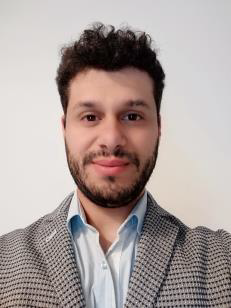 Prof. Luigi Danilo Tornello
Prof. Luigi Danilo Tornello
University of Catania, Italy
luigi.tornello@unict.it
Abstract: In this presentation, the modelling of the finite resolution rotor position measurement and the concept of instantaneous quantized speed are initially introduced. This modelling has been exploited to evaluate the quantization harmonic filtering action and the performances of speed-controlled drives at low speed. It can also be used to select the minimal value of position sensor resolution to satisfy the technical specifications requested to a speed-controlled drive in the low-speed operating range. This approach has been experimentally validated in variable speed drives including non-model-based and model-based speed estimation algorithms.
Luigi Danilo Tornello received the B.S. and M.S. degrees in electrical engineering from the University of Catania, Italy, in 2014 and 2017, respectively. In 2021 received the PhD in Systems Engineering, Energy, Information Technology and Telecommunications at the University of Catania, Italy. He is currently an Assistant Professor in the Electrical Machines, Drives and Power Electronics group at the University of Catania, Italy. His research interests include ac drive control technologies, digital signal processing techniques. He was a recipient of the 2018 Third Prize Paper Award from the IES Electrical Machine Technical Committee.
Title: A Win-Win-Win Situation - A new and sustainable way of co-operation between universities and industries
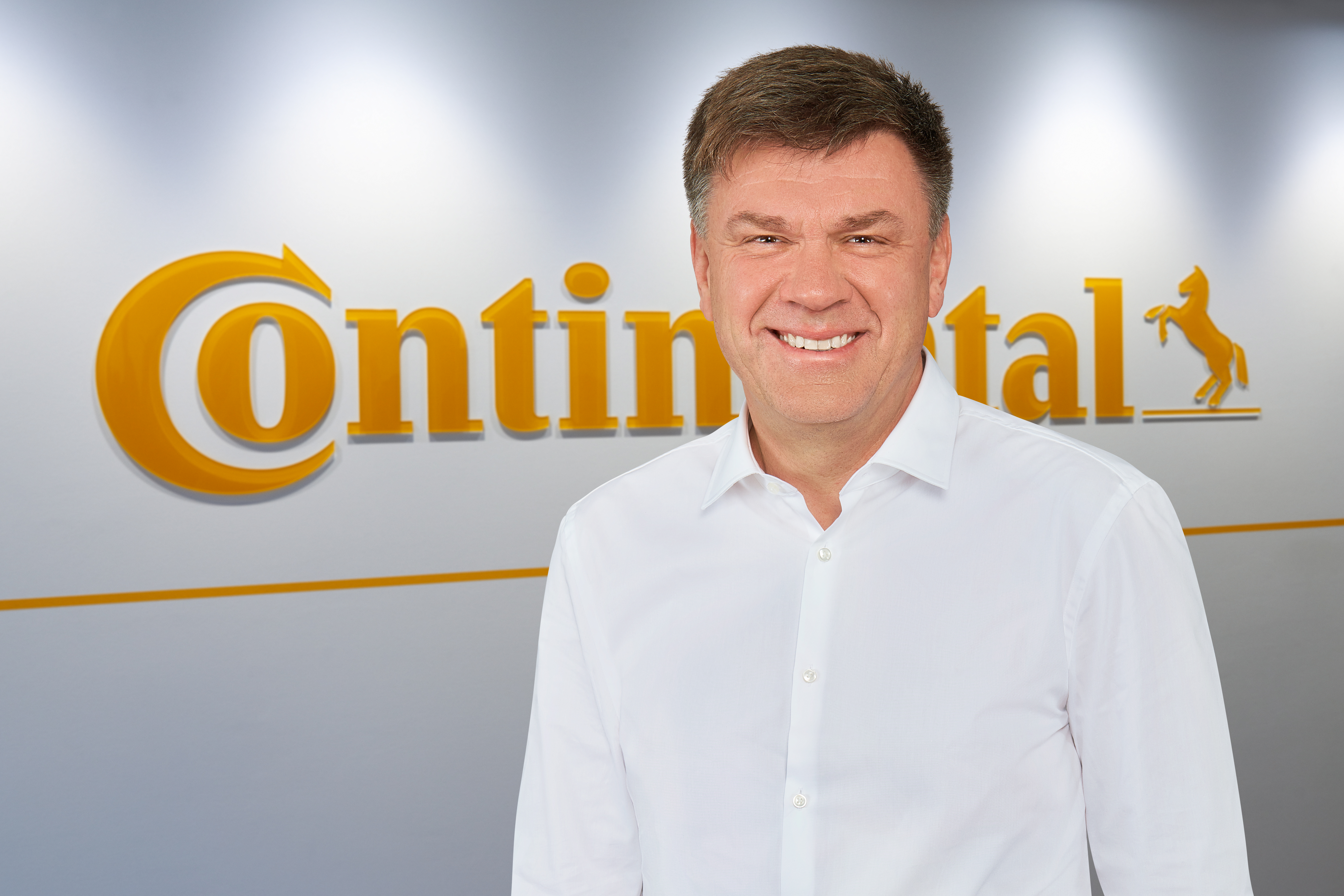 Richard Feddeck
Richard Feddeck
CIO Tires
Information Technology
Continental Reifen Deutschland GmbH
Abstract: On the example of the “Ready for Continental” program at the University of Zilina you will learn how a student program can look like that benefits all participants – the students, the university and the company. This almost 6-year-old program is a showcase for a successful long-term collaboration that has been constantly adapted to change, the pandemic being the most drastic one. The secret lies in focusing on real projects, caring about each individual student and always working on eye-level across all parties. Join the keynote to immerse yourself into the structure, benefits and side-stories of this unique partnership.
Richard Feddeck, is the Chief Information Officer of Continental Tires one of the largest Tire companies worldwide, where he oversees strategy development and technology road mapping for enterprise architecture, business applications and solutions development, digital transformation, advanced analytics, infrastructure and technology operations, information security, business continuity, and innovation orchestration. Driven by the need to bring transparency, ownership and change mindset to our society, he takes great pride in providing the best technological solutions possible and with that business value to the company.
Title: Power electronics and hybrid transformers in distributed energy system - opportunities and challenges
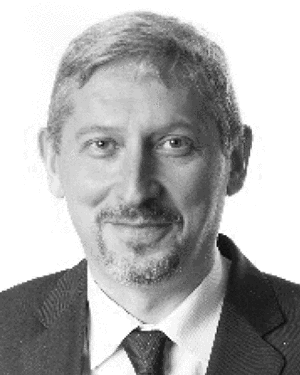 Prof. Mariusz Malinowski
Prof. Mariusz Malinowski
Warsaw University of Technology (WUT), Poland
mariusz.malinowski@pw.edu.pl
Abstract: The fast development of distributed generation systems (DGS), including an increasing number of renewable energy sources (RES), demand the change of classical grid into smart grids (SG), integrating all new distributed elements, e.g., active loads/sources/energy storages. Currently used conventional transformer cannot fulfill all requirements of SG. Therefore a new solution is demanded due to the nature of highly different types of energy sources, loads, and frequent voltage disturbances occurring in DGS. The proposed modern solutions are the applications of multifunctional power electronics, fault-tolerant power electronics, and hybrid transformers, that are able not only to meet the main requirements of SG but also respond to the future challenges defined by the constant progress of technology in all new fields (e.g., electromobility, energy store systems, etc.).
Professor Mariusz Malinowski received the Ph.D. and D.Sc. degrees in electrical engineering from the Institute of Control and Industrial Electronics, Warsaw University of Technology (WUT), Warsaw, Poland, in 2001 and 2012, respectively. He is currently with the Institute of Control and Industrial Electronics, WUT. He has co-authored more than 150 technical papers and seven books. His current research interests include the control and the modulation of grid-side converters, multilevel converters, smart grids, and power-generation systems based on renewable energies. Prof. Malinowski was a recipient of the IEEE IES David Irwin Early Career Award, IEEE IES Bimal Bose Energy Systems Award, Polish Prime Minister Award and the Polish Ministry of Science and High Education Award. He is a Fellow of IEEE. He is a corresponding member of the Division of Engineering Sciences of the Polish Academy of Sciences.
VENUE AND LOCATION
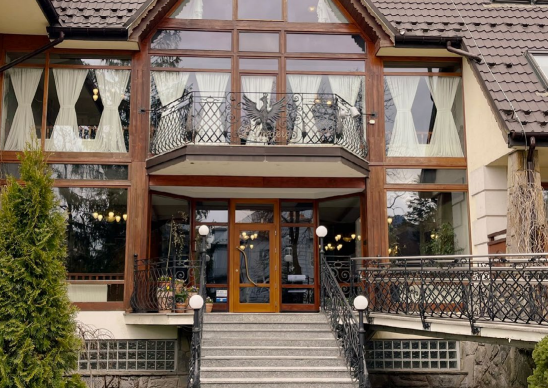 The ELEKTRO 2024 conference will take place in hotel Belvedere, Zakopane, Poland.
The ELEKTRO 2024 conference will take place in hotel Belvedere, Zakopane, Poland.
Zakopane is a town in the extreme south of Poland, in the southern part of the Podhale region at the foot of the Tatra Mountains. It is Poland's best-known mountain resort, famed for hiking in sommer and skiing in winter. Zakopane is also known for its beutiful wooden villas, dating from the late 19th century.
Zakopane has many tourist attractions such as Kasprowy Wierch Cable Car, Cmentarz Zasluzonych Na Peksowym Brzyzku, Gubalowka, Krupowki Street, Giewont Mountain, Wielka Krokiew, Kotelnica Bialczanska, and Aqua Park Zakopane. Winter sleigh rides combined with a bonfire, singing and regional treats are one of the favourite tourist attractions of Zakopane.
The conference will be held at the hotel Belvedere – ul. Droga do Białego 3, 34-500 Zakopane, Poland. You can make a reservation of accommodation at the hotel using this link.
Important: Accommodation registration deadline is April 25, 2024. Free cancellation is possible up to April, 25 2024.



